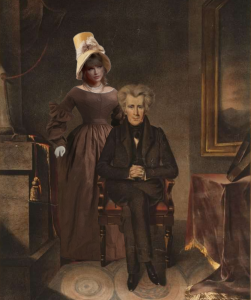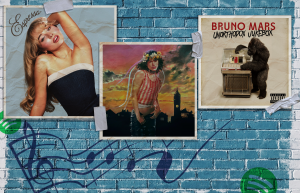Concept albums are some of the most original pieces of work ever created. Though sometimes ignored, concept albums still have a place in the music world, and here at Voice, we’re kind of obsessed.
The two of us were sitting and talking about concept albums one day, and agreed that some of them turned out great, but others fell hard. Here’s our conversation about the best and worst concept albums of all time.
“The Kinks Are the Village Green Preservation Society”—The Kinks, 1968
“The Kinks are the Village Green Preservation Society” is a concept album by Ray Davies, chief songwriter of the Kinks, which mainly focuses on the nostalgia and beauty of an idyllic country life.
JA: Although I am generally more in favor of the really early Kinks stuff, “The Village Green Preservation Society” might be their best complete album.
JH: It’s pretty calming stuff. A far cry from “All Day and All Of The Night,” but still keeps the Kinks’ distinctive resonance.
JA: This album is without a doubt, the record that proves that a concept album does not have to be dark or brooding or overly dramatic. It can be simple, well put together and generally pleasant to listen to, while still embracing a strong thematic focus.
JH: “The Kinks Are the Village Green Preservation Society” wasn’t exactly well received at the time of its issue, not to mention buried under the release of both “Zeppelin I” and “Electric Ladyland” that same year. As far as Ray Davies and company go, nowadays it still seems tough to get non-believers to believe.
“Dark Side of the Moon”—Pink Floyd, 1973
“Dark Side of the Moon” is Pink Floyd’s requiem to former bandmate, Syd Barrett. It also deals with fame, insanity, money and death.
JA: Pink Floyd is without a doubt the reigning lord of the concept album, and “Dark Side of the Moon” is arguably their last cohesive piece of genius.
JH: Agreed. This is one of the best records in the history of the world, from one of the most innovative bands in existence.
JA: I don’t know that “Dark Side of the Moon” is as much a concept album as it is a statement on what the band had been and what they had become since Syd Barrett left. The lyrics on insanity and loss fit the group’s earlier period, and the songs that focus on fame and creative forces hauntingly foreshadow their future work.
JH: I also love the transitions from the music being barely audible to wildly loud. I want to say it’s not for the passive listener, but I frequent this album and it seems to go both ways. It would be perfect homework music if I didn’t know any of the words to sing.
Liking “Dark Side of the Moon” is not only a standard for liking rock music, but it is almost a standard for liking music in general.
“The Wall”—Pink Floyd, 1979
“The Wall” is Roger Waters’ of Pink Floyd’s cathartic statement on his father’s death and the separation that he feels as a star from the audience.
JA: Sure, “The Wall” may be a big mess of self-loathing and power chords, but that may exactly be what makes it so very charming.
JH: It’s not as good as “Dark Side” but still fascinating nonetheless.
JA: The whole album is pretty much just Roger Waters milking his dad’s death in World War II for all it is worth, but I guess I can appreciate it.
JH: Yeah, Waters pretty much made this album all about himself. And took the rights with him when he left the band in the mid-’80s. I’m more of a David Gilmour fan anyway. A good portion of my favorite tracks on “The Wall,” is in part or in whole written by Gilmour, particularly his solo-penned “Goodbye Blue Sky.”
JA: As much as I want to really hate and critique “The Wall,” I can’t. It’s just too impressive.
“Tommy”—The Who, 1969
“Tommy” is Pete Townshend of The Who’s masterpiece about a deaf, blind and mute boy who, not only can play pinball, but leads a generation through his own unique worldview.
JH: This album is incredible.
JA: “Tommy” is a real winner. The only problem I can possibly have with the album is that it’s a record that was made for listeners in a different time. The ideas presented seem to fit best and almost exclusively with flower power, hippies and Woodstock.
JH: Possibly. I don’t think it’s too excluding of other philosophies though, at least not to the point of being distracting. I’m also keen on the fact that it screams “consumer culture” in every possible sense.
JA: I don’t know. It focuses so much on a sort of community and weird pseudo-religious stuff that trying to take its message seriously nowadays is nearly impossible.
JH: I have to say, I saw the movie at a very young age and it scared the living daylights out of me. I love it now, but there was no one scarier than the Acid Queen. No one.
JA: I thought all of the stuff about Tommy wanting to have some Oedipus-style fantasies with his mother was a little disturbing.
JH: The movie taught me three things. One, never take LSD. Two, watch out for Uncle Ernie. Three, to appreciate a very shirtless Roger Daltrey.
“Bat Out Of Hell I, II and III”- Meat Loaf, 1977, 1993 & 2006
“Bat out of Hell” is Meat Loaf’s loosely connected song cycle that focuses mostly on lovesick ballads.
JH: Which one is “I’d Do Anything For Love (But I Won’t Do That)” on? I’m pretty sure it’s the second one but I don’t want to admit I know that. Because I don’t.
JA: Guess who directed the video for that. Michael “Pearl Harbor” Bay. Alongside about three other videos from that album.
JH: Gross.
JA: I wish I had good things to say about Meat Loaf. He has never made music that I have actually wanted to listen to. He fits somewhere between the blandest artist of all time and the dullest.
“The Crane Wife”—The Decemberists, 2006
“The Crane Wife” The Decemberists tell a classic Japanese story of a man who saves a crane from an arrow wound. It is matched up with a retelling of “The Tempest” by William Shakespeare.
JA: As much as I like “Picaresque,” I have to say “The Crane Wife” is probably the best album by The Decemberists.
JH: I have to disagree. “Picaresque” gets my vote for best Decemberists disc. But I will say “The Crane Wife” is a close second.
JA: Although there is so much sadness and death on “The Crane Wife,” I still end up kind of obsessed with the way that the sound kind of churns around.
JH: And I like the more upbeat sounding, yet still depressing tunes. “O Valencia!” steps up to the valor of a “16 Military Wives” or “The Sporting Life”-type melody.
JA: The Decemberists always had a talent for sculpting sound to suit them, but “The Crane Wife” may be their best effort in that department.
JH: And Colin Meloy is a heck of a storyteller.
“American Idiot”—Green Day, 2004
“American Idiot” is a concept album by Green Day that focuses on the post 9-11 American landscape, particularly teenagers and twenty-somethings that are disenfranchised by the new world.
JA: I remember when “American Idiot” came out and being excited that someone was releasing a concept album. Then, I listened to it.
JH: I 100 percent completely agree. Granted, I enjoyed “Dookie” just as much as the next self-respecting angsty preteen, but “American Idiot” never seemed to me like a true Green Day effort. As many acclaims as it got upon its release, I believe “American Idiot” is merely 60 minutes of weak political farce, tossed together by three pseudo-punks wearing too much makeup.
JA: Apparently all it takes to sell an album is stringing some loosely liberal political statements into a bunch of jittery pop-punk, dressing in black, and merchandising everything possible. I don’t think Green Day will ever be able to redeem themselves for “American Idiot.” Ever.
JH: Like, authority sucks, man.




